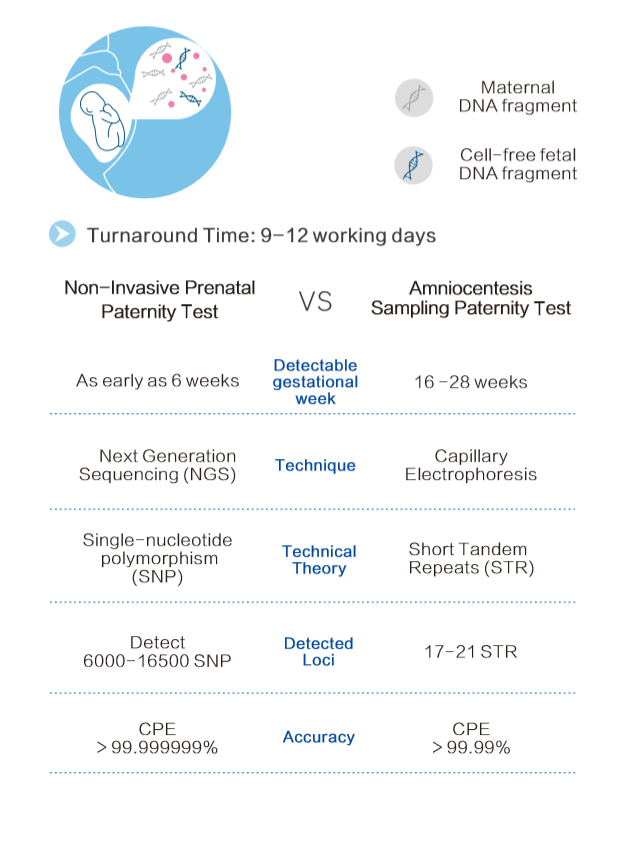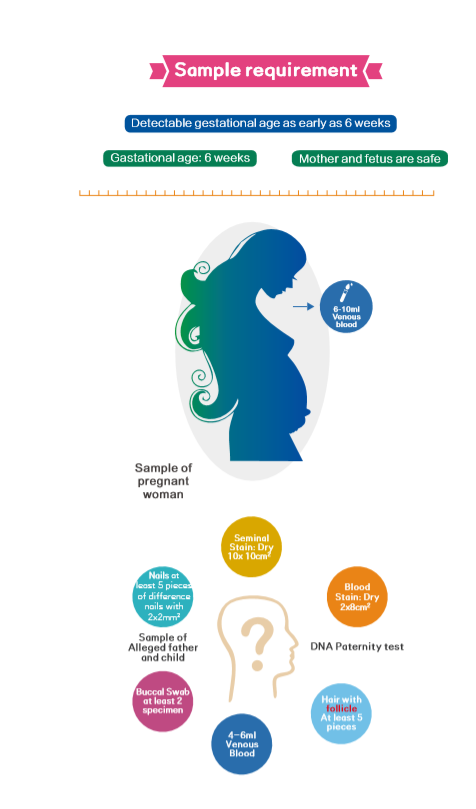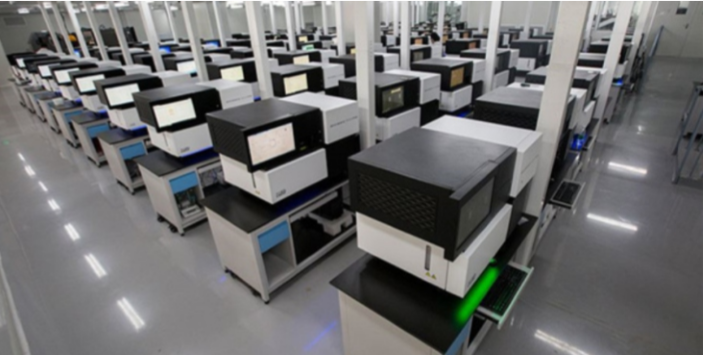Non-Invasive Prenatal Paternity Test (NIPPT) uses Next generation sequencing (NGS) technique to detect the fetal genetic information from the cell-free fetal DNA of maternal plasma. With the fetal genetic information, paternity test can be performed comparing with genetic materials of alleged father and determine the biological relationship.


Notice
- Pregnant woman who have received blood transfusion, transplantation, stem cell therapy, immuno-therapy or with tumor disease, pre-eclampsia, triplets or more fetus, have reduced fetus from twin pregnancy, and abortion within 6 months are NOT suitable for non-invasive prenatal paternity test.
- Surrogate or fraternal twins need to provide samples of all alleged fathers and consult customer service.
- From the 5th week of pregnancy, the mother’s peripheral blood contains cell-free fetal DNA. However, due to differences in individual concentrations, non-invasive prenatal paternity test accept at the earliest 6 weeks. If the fetal free DNA concentration is insufficient, the reporting period may be prolonged or maternal sample may be requested for re-collection to ensure the accuracy of test. The testing period is calculated from the day after receiving the recollected sample.
- You are responsible for the authenticity of the sample, and we are responsible for the accuracy of the test results.
- Please follow the the sample requirements during sample collection. If the sample is not qualified (insufficient amount or volume, mixed with other sample, or contaminated, etc.) re-collection sampling may be required.

DNA SERVICE CENTER HONG KONG CO., LIMITED is part of the BGI Shenzhen Forensics CO., Ltd. (hereinsafter referred to as "FGI" is the first forensic innovation enterprise integrating industry, education, research and practices. It is committed to be one of the leading and more high-accuracy forensic DNA testing centers, promoting forensic innovation transformation for benefiting human security. It services and solutions are available in more than 30 countries and regions around the world, which has identified more than 400,000 cases with an accuracy of 99.999999%.

